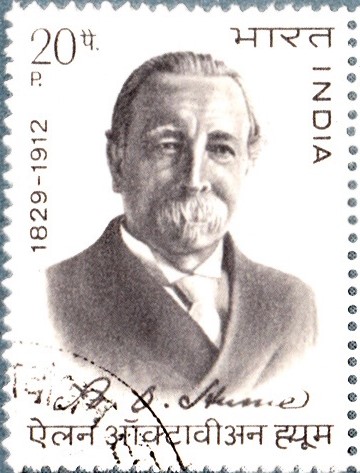
Allan Octavian Hume
A commemorative postage stamp on the Death Anniversary of ‘the Pope of Indian ornithology‘ A. O. Hume, a member of Imperial Civil Service and one among founders of Indian National Congress (INC) :
 Issued by India
Issued by India
Issued on Jul 31, 1973
Description of Design : The stamp design is vertical and depicts the portrait of A.O. Hume.
Type : Stamp, Postal Used
Colour : Suede Grey
Denomination : 20 Paise
Overall Size : 3.91 X 2.90 cms.
Printing Size : 3.56 X 2.54 cms.
Perforation : 13 x 13
Watermark : Printed on unwatermarked adhesive stamp paper
Number Printed : 10,00,000
Number per issue sheet : 35
Printing Process : Photogravure
Designed and Printed at : India Security Press
Name : Allan Octavian Hume CB
Born on Jun 6, 1829 at Montrose, United Kingdom
Died on Jul 31, 1912 at London, United Kingdom
About :
- In the 25th year of the Nation’s Independence, it is befitting to commemorate Allan Octavian Hume by issuing a special postage stamp in his honour. As an administrator with a deep insight and understanding of the problems of rural India, as a friend of Indian peasantry, as the champion of the aspirations of the Indian people for self-government and as the foremost advocate of India‘s unity and nationhood, Hume carved out for himself a place of affection in the hearts of the Indian people.
- Joining the Bengal Civil Service at 20 in the year 1849, Hume spent 45 years of his life serving the Indian people. Realising quite early that India‘s development and release from poverty depended on agriculture, he worked out a blue-print of agricultural reform in India (1879) providing for agricultural education and establishment of veterinary colleges, hospitals and agricultural banks. His pronounced sympathies with the Indian people brought him into conflict with the Government and he was retired in 1882 without adequate reason.
- In the very next year, he initiated moves for the creation of a political organisation of the Indian people through which they could approach the British Government for constitutional reform and better treatment. It has at the initiative of Mr. Hume that the Indian National Congress was founded in 1885. Hume stood for (i) the fusion into one national whole of all the different elements that constitute the population of India; (ii) the gradual regeneration along various lines, spiritual, moral, social and political of the nation thus evolved; and (iii) the consolidation of the union between India and England by securing the modification of such of its conditions as may be unjust or injurious. Having launched the first constitutional battle, Hume worked for the promotion of India‘s cause abroad. He conceived of the Indian Telegraph Union in order to finance the dissemination of the Indian viewpoint through press telegrams in British newspapers. He created the Indian Parliamentary Committee to lobby for the Indian cause in the British Parliament. He also helped to start a journal called ”India“ ‘in 1890 which became a weekly by 1898. As a government officer, he utilised every opportunity to do something constructive in social and economic terms. As a free man, he threw in his lot even more passionately with the Indian people.
- In 1894, he left India but continued his mission for the next 18 years in England. When he died at the age of 84, on July 31, 1912 the people of India mourned his death as if he was one of them.


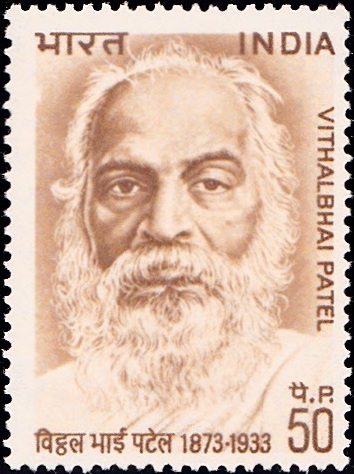
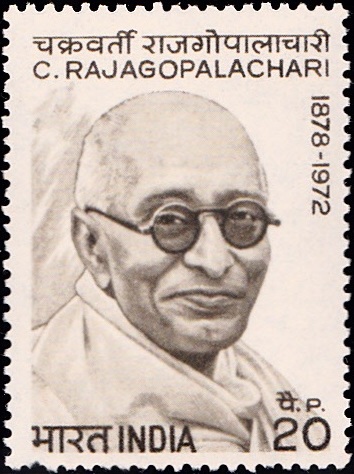
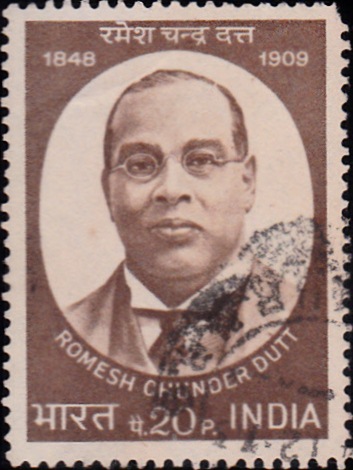
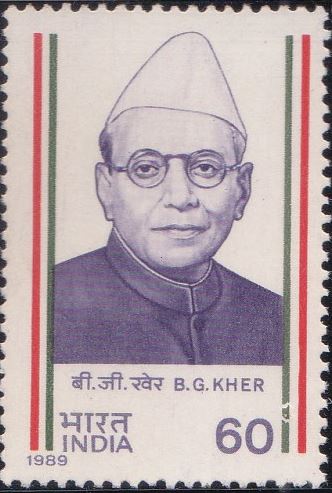
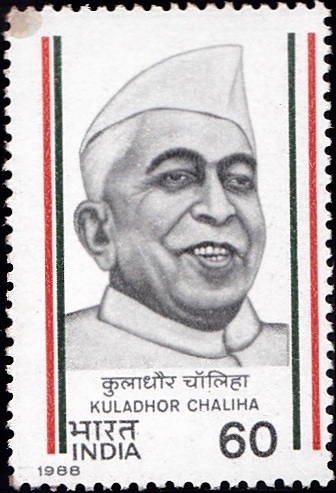
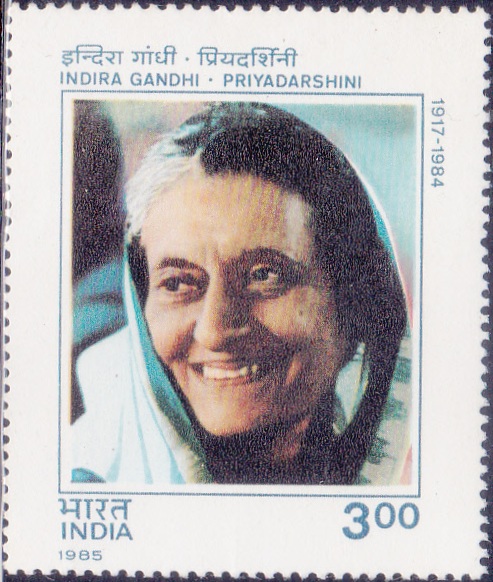
Dear Sir/Ma’am
I do have this stamp of A.O. hume without ink mark (fresh) and in a very good condition in my stamp collection.
[…] British MP. Naoroji is also credited with the founding of the Indian National Congress, along with A. O. Hume and Dinshaw Edulji Wacha. His book “Poverty and Un–British Rule in India” gave a […]
[…] his role in the founding of the Indian National Congress. His friends and admirers included Mr. Hume and Sir Surendra Nath […]